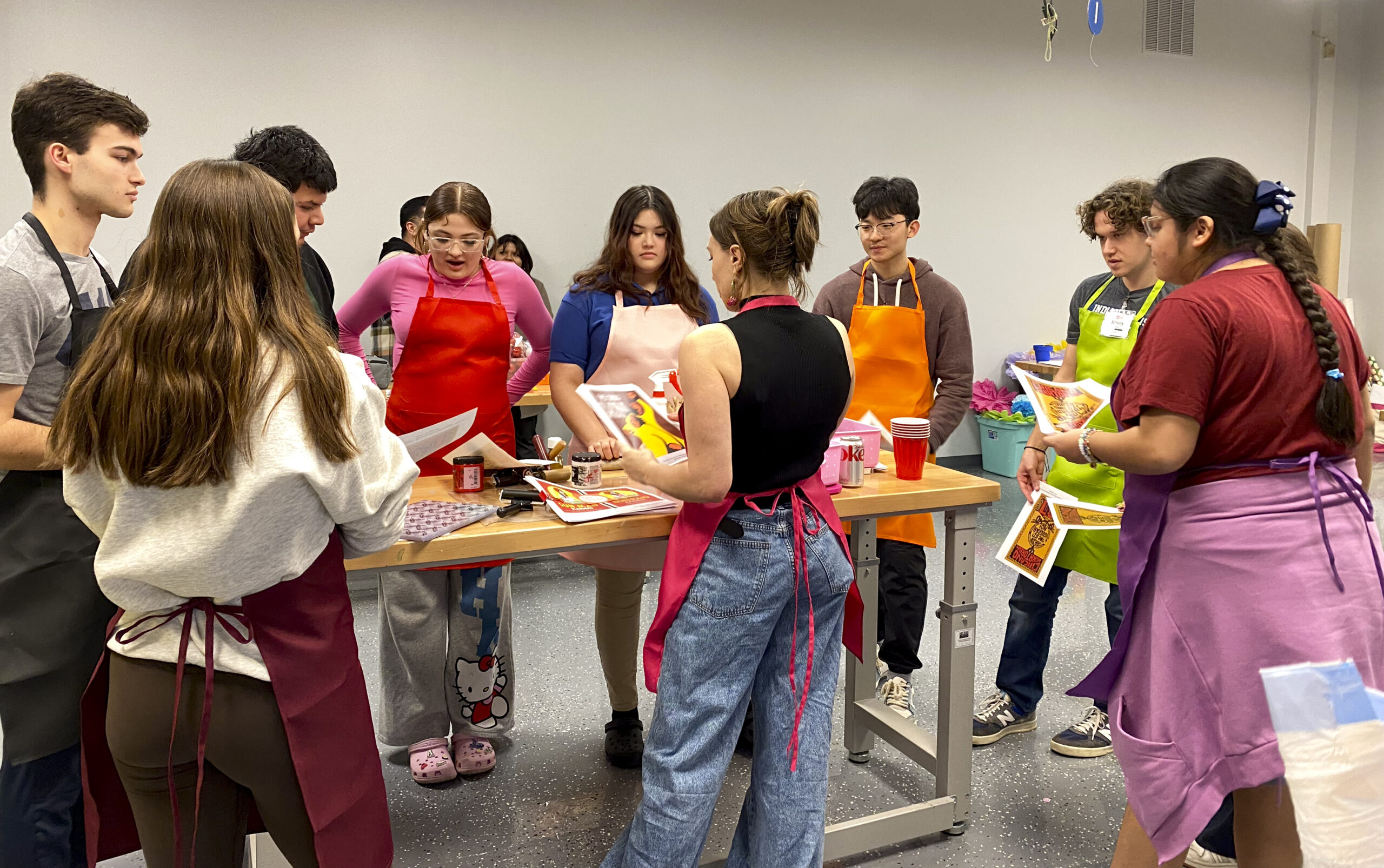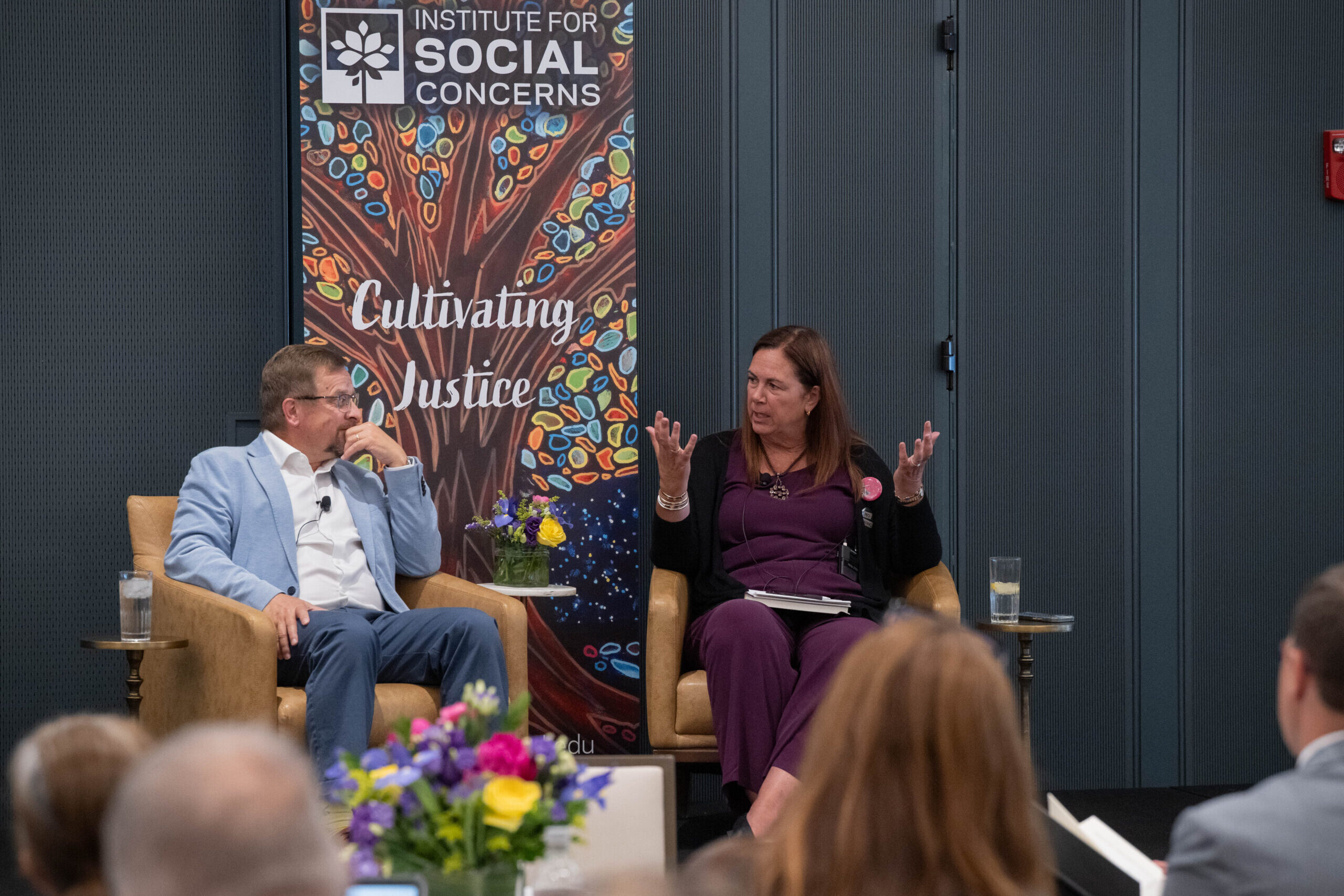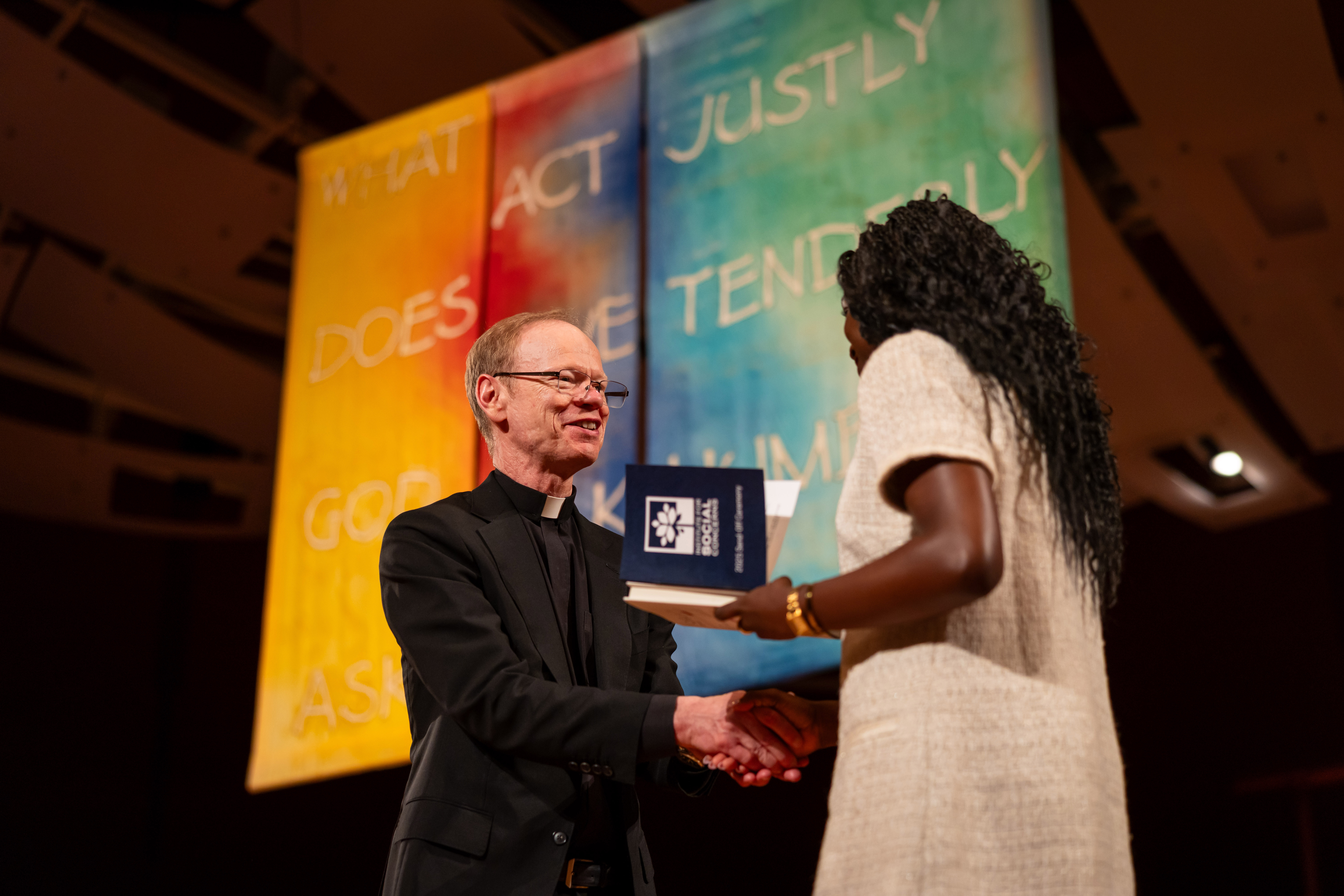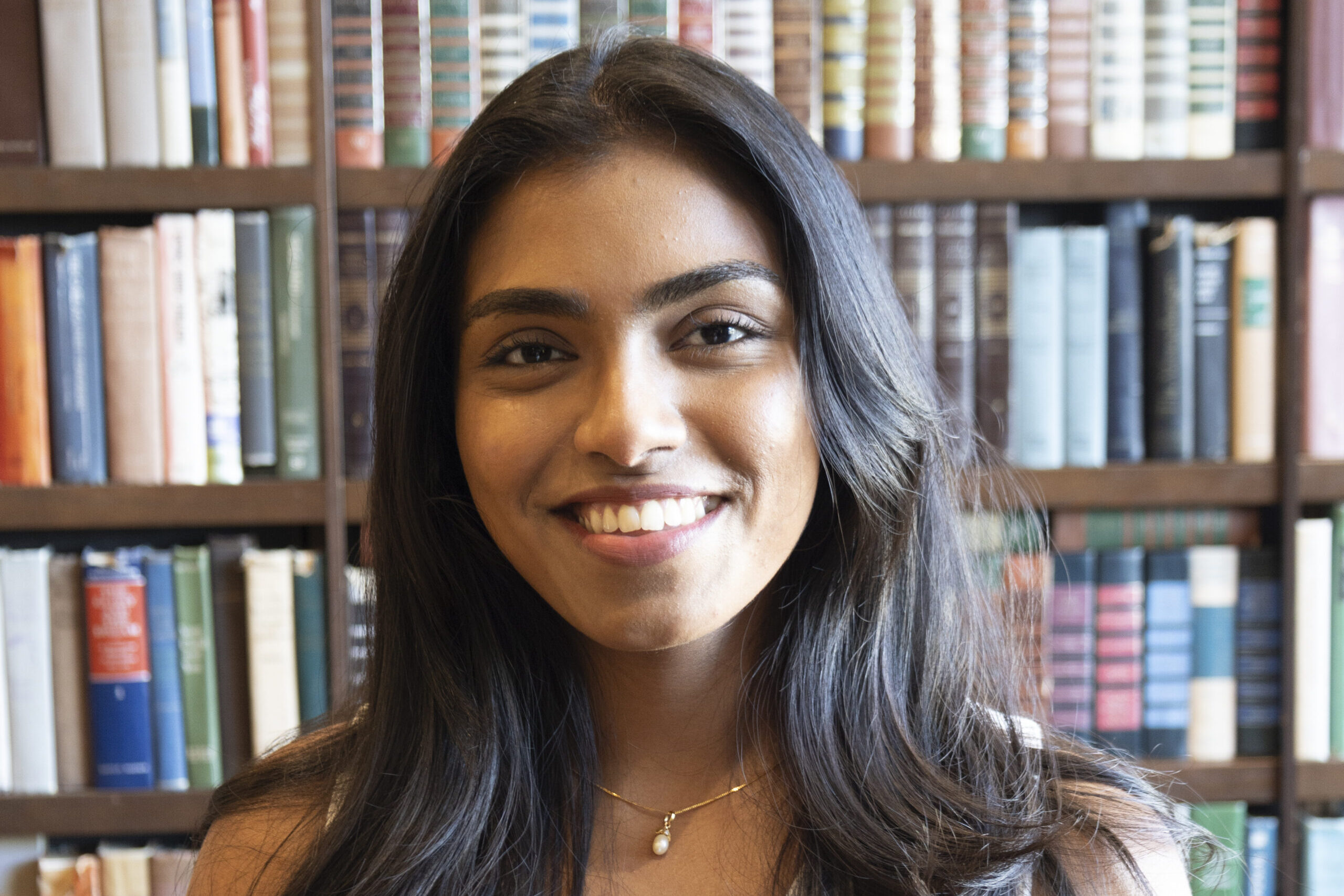ReSearching for the Common Good: Joachim Ozonze
April 16, 2024
As an interdisciplinary academic institute, the Institute for Social Concerns leverages research to respond to the complex demands of justice and to serve the common good. This series, ReSearching for the Common Good, highlights some of the scholars in our community.
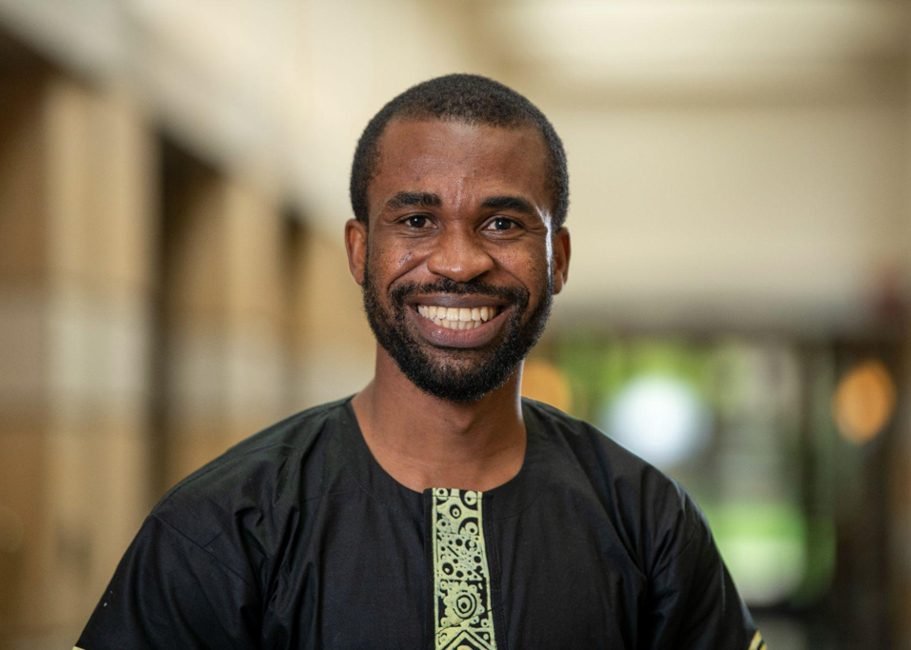
Joachim Ozonze is a doctoral candidate in the Theology and Peace Studies program at the Kroc Institute of the University of Notre Dame. He holds a master’s degree in theological studies from Notre Dame, with a major concentration in systematic theology and minors in gender studies, digital cultures, and peace studies. He earned a bachelor’s degree in philosophy and theology from Bigard Memorial Seminary Enugu, Blessed Iwene Tansi Major Seminary Onitsha, and Urban University Rome.
Ozonze was a 2022–23 Graduate Justice Fellow of the Institute for Social Concerns.
What are you researching right now?
When I get asked this question, I usually smile and say, “I do drugs!” Behind the humor lies a deep and urgent calling. My research explores the intricate intersections of drug addiction, violence, and healing justice. At its core, my work seeks to advance evidence-based strategies for responding to drug crises—approaches that go beyond surface symptoms to confront the deeper structures of human disposability. I examine the drug crisis not as an isolated phenomenon but as a rupture of deeper structures of violence and as a window into how communities are socialized into cycles of harm.
At the same time, I see it as a potential site where we might cultivate pathways toward healing, solidarity, and hope. I’m particularly inspired by the possibilities emerging from digital technologies—especially virtual reality (VR) and artificial intelligence (AI)—for imagining new possibilities and opening up immersive spaces for empathy, when guided by ethical care and creativity.
How did you become interested in this research?
To be clear, I wasn’t doing drugs in the first year of my doctoral program! But I was wrestling with some pressing questions: How are individuals and communities socialized into violence? What are the mechanisms by which violence becomes inscribed, normalized, and reproduced? And, perhaps most urgently, is it possible to disrupt these cycles and to create spaces for healing and reconciliation?
Drawing on my academic training and pastoral experience as a Catholic priest, I became increasingly interested in the role of ritual as a technology of inscription—marking bodies, shaping memory, and naturalizing violence. But I was equally curious about the potential of Christian theology and rituals for unlearning hatred and cultivating a culture of life that reimagines identity and belonging.
Initially, my research focused on the Nigerian Civil War (1967–70), exploring how its legacies—more than 50 years on—continue to haunt the everyday lives of Nigerians. But in late 2019, something shifted. Social media exploded with disturbing videos from Southeast Nigeria: young men and women tied to wooden beams in public squares, publicly scourged for using or selling mkpurummiri, the Igbo code name for crystal meth. These harrowing spectacles were desperate communal responses to a spiraling methamphetamine crisis. I couldn’t unhear the screams. That haunting encounter marked a turning point.
From that moment, I began an ethnographic journey—into drug communities and street corners, detention centers and prisons, local rehabilitation efforts and care homes, labs, archives, and digital spaces. It quickly became clear that the drug crisis in Nigeria was not an isolated issue but the eruption of deeper cultural, structural, and historical legacies of violence. I started to understand the cane deliverance ritual as a desperate communal response that is trapped in legacies that continue to mark communities violently, blurring the lines between punishment, protest, healing, justice, and violence.
As I traced these patterns, I saw how intimately this crisis in Nigeria was connected to a broader global story. I studied the war on drugs in the United States and the Philippines, noting how different nations narrate and respond to this burgeoning global crisis. I began to move beyond siloed approaches that reduce the drug crisis to either a security threat or public health issue toward a more integrated and nuanced framework that captured the complex entanglements of the drug-violence nexus.
The Graduate Justice Fellowship presented a pivotal opportunity to wrestle with these questions in community. It was during this time that the idea of healing justice began to crystallize for me: this understanding of justice as a journey defined and driven by individual and collective healing.
Today, my research brings together ritual studies, theological ethnography, contentious politics, trauma theory, and memory studies to offer a more nuanced, compelling, and transformational account of this global crisis—one rooted in the belief that healing is not just possible but necessary for justice to take root.
Where do you hope to take this research and how do you see it advancing the common good?
As a public facing project, my research is grounded in a deep commitment to collaboration and community engagement. Inspired by my work with the US national opioid database, thanks to the Lucy Institute, I’m working to establish a foundational database of the drug crisis in these regions. Using geographic information system (GIS) and AI-driven analysis, this platform will visualize the spread of the crisis, map ritual response sites, and highlight community recovery efforts. The goal is to build an interactive digital map—a living archive—that invites global collaboration while inviting and honoring community engagement.
Beyond the data, I dream of something more audacious and perhaps more tender: the creation of a peace tech research and rehabilitation center that would integrate peace studies, addiction recovery, and digital technologies to address drug addiction, incarceration, and structural violence. Guided by Catholic social thinking, this center will be shaped by those who have been on the frontlines of the drug crisis, those recovering from addiction, and those emerging from incarceration—not as subjects of research but as co-creators of knowledge and change. I envision this center to be a living culture of space, disrupting cycles of violence and opening spaces for personal and communal healing.
This research has become a profound invitation to reflect on the meaning of the common good. The drug crisis, in all its local and global manifestations, reveals both the limits of individualism and the need to critically engage community responses. It offers a powerful lens through which to explore vulnerability, not simply as a condition to be hidden or overcome but as a sacred starting point for reimagining identity, belonging, and solidarity.
Related Stories
-
Summer of Social Concerns—students engage in justice research around the globe
-
Printmaking history—the institute partners with community to celebrate South Bend’s Latino heritage
-
Forming character through friendship—Virtues & Vocations conference promotes human flourishing in professional education
-
Go be justice—Sending off graduates to work for the common good
-
ReSearching for the Common Good: O. Amandhi Mathews


